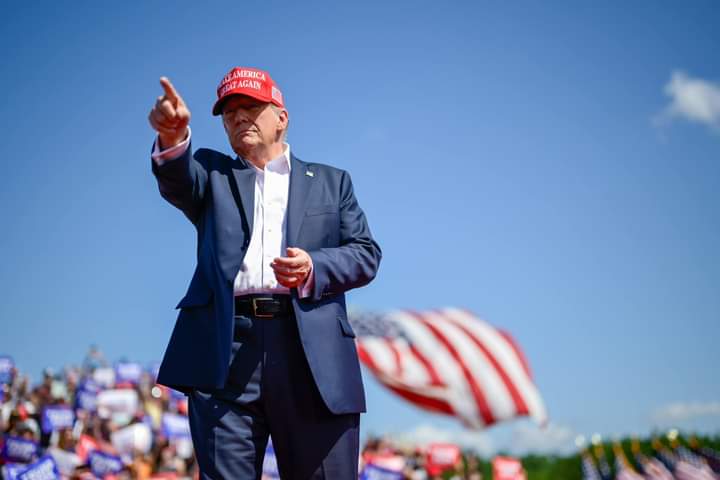The U.S. Supreme Court on Monday ruled that former President Donald Trump is immune from prosecution for certain actions taken while in office. This decision effectively shields Trump from criminal charges related to his efforts to overturn the 2020 presidential election results.
The ruling came as the Supreme Court overturned a lower court’s decision that had previously rejected Trump’s bid for immunity. The court’s six-justice conservative majority, led by Chief Justice John Roberts, delivered the opinion that has sent shockwaves through the legal and political communities.
“We conclude that under our constitutional structure of separated powers, the nature of presidential power requires that a former President have some immunity from criminal prosecution for official acts during his tenure in office,” Roberts stated. He emphasized that this immunity is crucial to maintain the balance of power within the government.
Roberts further clarified, “At least with respect to the President’s exercise of his core constitutional powers, this immunity must be absolute. The President enjoys no immunity for his unofficial acts, and not everything the President does is official. The President is not above the law.”
The ruling has sparked intense debate among legal experts and political commentators. Supporters of the decision argue that it preserves the integrity of the executive branch by ensuring that presidents can perform their duties without fear of legal retribution for their official actions. Critics, however, contend that it sets a dangerous precedent by potentially placing former presidents above the law for actions taken while in office.
The case stems from Trump’s controversial efforts to challenge and overturn the results of the 2020 presidential election, which he lost to Joe Biden. Trump and his legal team have faced numerous investigations and legal challenges related to these efforts, with allegations ranging from incitement to conspiracy.




